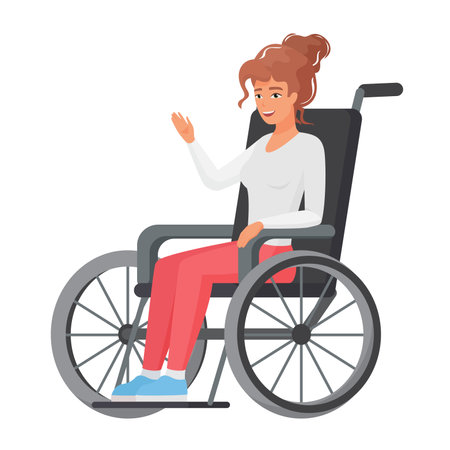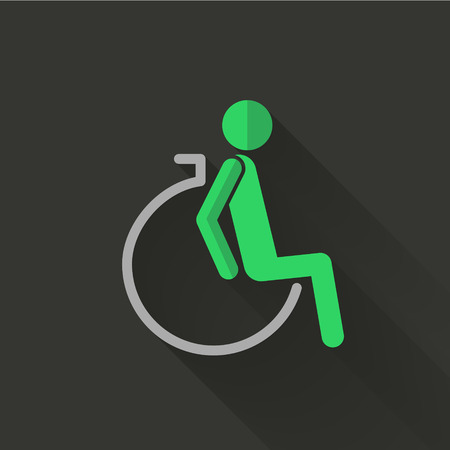Introduction to Private Rehab for Young People in the UK
Across the United Kingdom, there has been a noticeable rise in the number of children and adolescents requiring specialised support for mental health challenges, substance misuse, and behavioural issues. As public services struggle to keep pace with growing demand, many families are exploring private rehabilitation as an alternative route to timely and tailored care. Private rehab facilities offer young people access to expert multidisciplinary teams and bespoke treatment plans, often in supportive residential environments. However, while these services can provide critical intervention at pivotal moments, they come with considerable financial implications. For UK families, understanding the true costs involved is essential when considering private rehab as part of their child’s journey to recovery. This article offers a comprehensive overview of why private rehab is increasingly sought after by parents and carers, and highlights the key cost considerations every family should be aware of before making this important decision.
2. What Determines the Cost of Private Rehab?
When considering private rehabilitation for children and adolescents in the UK, understanding what influences the overall cost is essential for families making informed decisions. Several key factors can significantly affect how much you might expect to pay for private treatment. Below, we break down these core considerations:
Length of Stay
The duration of a child or adolescent’s stay in a rehab facility is one of the most direct factors affecting total costs. Programmes may range from short-term interventions lasting a few weeks to longer-term residential care extending several months. Generally, longer stays result in higher fees, but they may also offer more comprehensive support.
Types of Therapy Offered
Rehabilitation centres typically provide a variety of therapeutic options, such as cognitive behavioural therapy (CBT), family therapy, group counselling, and alternative therapies like art or music therapy. The inclusion of specialised or evidence-based therapies often increases the price but may be necessary for addressing complex needs.
Comparison Table: Types of Therapy and Associated Costs
| Type of Therapy | Description | Typical Cost Range (per session) |
|---|---|---|
| Cognitive Behavioural Therapy (CBT) | Evidence-based talk therapy focusing on thoughts and behaviours | £50–£120 |
| Family Therapy | Sessions involving family members to address dynamics and support recovery | £60–£150 |
| Group Counselling | Psychoeducation and peer support led by a professional therapist | £30–£80 |
| Specialist Therapies (e.g., Art, Music) | Creative therapies tailored to young people’s interests and needs | £40–£100 |
Level of Medical Care Required
The level of medical attention needed varies depending on each young person’s health status. Some children may require regular psychiatric assessments, medication management, or even 24/7 nursing care if there are co-occurring physical or mental health conditions. Facilities offering high levels of clinical input naturally command higher fees.
Facilities and Amenities Provided
The quality and range of facilities available in private rehab settings can differ markedly. Some centres offer standard shared accommodation with basic amenities, while others provide private rooms, en-suite bathrooms, recreational areas, fitness facilities, and bespoke educational support. Enhanced comfort and greater privacy generally come at a premium.
An Overview of Key Cost Influencers in UK Private Rehab for Young People:
- Length of stay: Short-term vs long-term programmes
- Therapeutic offerings: Standard vs specialist therapies
- Level of medical care: Basic monitoring vs intensive clinical support
- Facilities: Standard vs premium accommodation and amenities
Ultimately, understanding these cost determinants allows UK families to better evaluate their options when seeking the right private rehab solution for their child or teenager.

3. Typical Fee Ranges in the UK
When considering private rehab for children and adolescents, one of the most pressing concerns for UK families is the cost involved. Fees can vary significantly based on location, the type of facility, and the level of care required. Generally, London and the South East command higher prices compared to other regions across the country.
For example, in London, private rehab programmes for young people typically start from around £5,000 per week for residential treatment. This figure can rise to £10,000 per week or more in high-end facilities offering bespoke care packages. These centres often provide a broad range of therapies, educational support, and family involvement as part of their comprehensive approach.
Outside London, families may find more affordable options. In areas such as the North West, Midlands, or Scotland, weekly fees usually begin at approximately £3,500 to £6,000 for similar levels of care. While still a significant investment, these centres may offer excellent standards of treatment with slightly fewer luxury amenities compared to those in the capital.
It is important to note that costs are also influenced by the length of stay and whether inpatient (residential) or outpatient (day care) services are chosen. Outpatient programmes tend to be more budget-friendly, with costs ranging from £1,000 to £3,000 per week depending on intensity and frequency of sessions.
Ultimately, when weighing up these typical fee ranges, UK families should consider both immediate financial implications and the long-term benefits that effective private rehab can offer their child’s future wellbeing. Many clinics provide transparent pricing structures and guidance on what is included in their fees—making it easier for parents and guardians to compare options across different regions.
4. Comparing Private and NHS Rehab Options
When considering rehabilitation for children and adolescents in the UK, families are often faced with a choice between private and NHS (National Health Service) rehab services. Each option comes with its own set of advantages and challenges, particularly when it comes to cost, waiting times, level of support, and the overall experience for young people and their families.
Cost Differences
One of the most significant differences is the financial aspect. While NHS rehab services are free at the point of use for UK residents, private rehab programmes require direct payment, which can be substantial. The cost for private care varies based on factors such as location, type of treatment, and duration of stay.
| Aspect | NHS Rehab | Private Rehab |
|---|---|---|
| Cost to Families | No direct charge | £3,000–£12,000 per week* |
| Funding Source | Government-funded | Self-pay or insurance |
*Costs may vary depending on provider and length of programme.
Waiting Times
Another crucial factor is waiting time. The NHS often faces high demand for its services, which can lead to lengthy waiting lists—sometimes several months—before a child or adolescent can begin treatment. In contrast, private rehab centres generally offer quicker access, with many able to admit new clients within days of initial contact.
Level of Support Provided
The level and intensity of support can also differ significantly. Private rehabs typically offer more individualised care with higher staff-to-patient ratios, frequent one-to-one therapy sessions, and tailored family involvement. NHS services are comprehensive but may have limited resources for intensive or highly personalised care due to budget constraints.
| Support Feature | NHS Rehab | Private Rehab |
|---|---|---|
| Therapist Access | Group-based; limited 1:1 time | Frequent 1:1 sessions available |
| Family Involvement | Variable; depends on local service provision | Bespoke family support programmes common |
| Aftercare Support | Standard follow-up (may be group-based) | Personalised aftercare plans provided |
Overall Experience for Families and Young People
The overall experience in private rehab is often described as more comfortable and less clinical, with amenities designed to promote wellbeing in a home-like environment. NHS facilities focus on delivering essential care efficiently but may not have the same range of amenities or flexibility in therapeutic approaches.
Ultimately, choosing between private and NHS rehab involves weighing financial realities against needs for timely access and specialised support. For many UK families seeking help for their children or adolescents struggling with addiction or mental health issues, understanding these differences is a vital step in making an informed decision that best supports recovery.
5. Funding, Insurance, and Payment Options
When considering private rehabilitation for children and adolescents in the UK, understanding how to finance treatment is a significant concern for many families. The costs can be substantial, but there are several avenues of support available. Below is an overview of the main options, helping you make informed decisions about the best path forward for your child’s care.
Private Health Insurance
Many UK families rely on private health insurance to help offset the cost of private rehab. Policies vary considerably, so it is essential to check with your provider regarding what is covered—some plans may include partial or full coverage for specific therapies, residential stays, or outpatient programmes for mental health and substance misuse. Always clarify any restrictions or waiting periods before commencing treatment.
Payment Plans
Most reputable private rehab centres in the UK offer flexible payment plans to ease the financial burden on families. These plans allow you to spread the cost of treatment over several months, making high-quality care more accessible. When speaking with providers, ask about interest rates, deposit requirements, and eligibility criteria to find a plan that suits your budget.
Charitable Organisations and Grants
For families who may not have insurance or sufficient savings, several UK-based charities provide grants or bursaries specifically aimed at supporting young people in need of rehabilitation services. Organisations such as The Prince’s Trust or Family Action occasionally offer financial assistance or can help signpost you to additional resources tailored to children and adolescents facing mental health or addiction challenges.
Seeking Guidance
If you are unsure where to begin, consider reaching out to local councils, school counsellors, or your GP for guidance. They can often advise on available funding streams and support networks within your community.
Summary
Exploring all available funding sources—from private insurance and payment plans to charitable support—can significantly reduce the financial strain on families seeking private rehab for their children. By being proactive and well-informed, you can ensure your child receives the help they need without unnecessary stress or delay.
6. Key Considerations for Families
Guidance on Assessing Value for Money
When selecting a private rehab facility for your child or adolescent, it is crucial for UK families to carefully assess the value for money each option offers. Look beyond headline costs and examine what is included in the fee—such as therapy sessions, educational support, family involvement programmes, and aftercare services. Check if the centre is registered with the Care Quality Commission (CQC) and ask about staff qualifications, ratios, and experience working with young people. Transparent pricing and a clear breakdown of services are key indicators of a trustworthy provider.
Selecting the Right Facility
Choosing the right rehab centre involves more than just cost considerations. Evaluate each facility’s approach to treatment—does it offer evidence-based therapies tailored to children and adolescents? Is there an emphasis on holistic care, including mental health support, physical wellbeing, and family engagement? Proximity to home may be important for ongoing family involvement, while some families prefer centres further afield to ensure privacy. Speak with current or former clients where possible and request testimonials or case studies relevant to your situation.
Practical Tips on Navigating the Process
- Gather Information: Start by researching options online and requesting detailed brochures from potential providers.
- Arrange Visits: Schedule tours of shortlisted facilities to meet staff, view accommodation, and get a feel for the environment.
- Ask Questions: Prepare a list of questions covering treatment methods, safeguarding policies, emergency procedures, and parental involvement.
- Check Funding Options: Inquire about payment plans or bursaries that may be available. Some families use private health insurance; check policy details carefully.
- Seek Professional Advice: Consult your GP or a specialist addiction counsellor familiar with local services—they can help you evaluate choices objectively.
Making Informed Decisions
Navigating private rehab for young people can be daunting, but taking a systematic approach will empower you to make informed decisions. Prioritise quality of care, transparency in pricing, and suitability for your child’s unique needs. Remember that investing in the right support now can have long-lasting positive outcomes for your child and your whole family.


